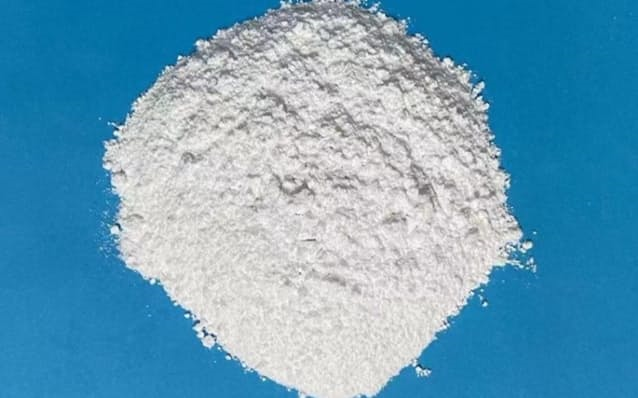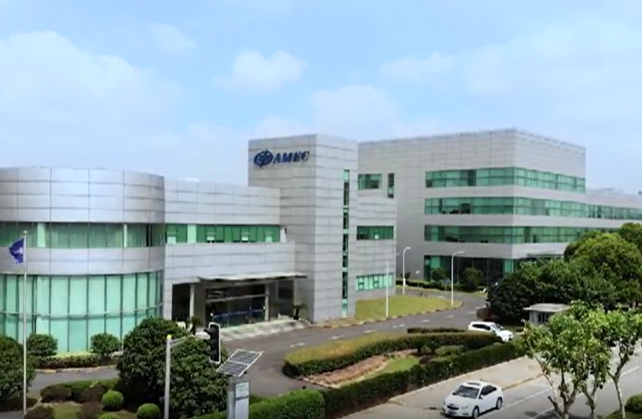They should. Losing entire industries will hurt their competitiveness.I don't think they really care about this.
You are using an out of date browser. It may not display this or other websites correctly.
You should upgrade or use an alternative browser.
You should upgrade or use an alternative browser.
Chinese semiconductor industry
- Thread starter Hendrik_2000
- Start date
- Status
- Not open for further replies.
And what then? China will go to war if the US theatens secondary sanctions against Trinidad and Tobago for buying from Huawei? No it won't. The US has leverage yo coerce the rest of the world to do pretty much whatever it wants, due to globalization. US technology is everywhere. Google, Amazon, Intel, Microsoft, etc. No one can survive without it unless they have exceptional political will (like Russia) for some reason that overrides purely economic concerns.Banning Chinese equipment in US soil is easy and with the stroke of a pen, they already done it with telecom equipment, banning Chinese equipment from the rest of the world will required each ally to agree which is easier said than done, semiconductor equipment is very expensive and if the Chinese offer a good product at relative low price will be very hard not to buy, very different from telecom. The US can't "forbid" anyone from buying anything except by the use of secondary sanctions and that will be in the eyes of the Chinese an act of war.
Not sure why it should default to an act of war, what I think most likely will happen if they escalate this petty sanctioning game is the Chinese semiconductor industry will become increasingly more opaque and shady, with shell companies domestic and overseas being established, trade secret stealing through espionage and hacking, patents and copyrights being violated and litigations ignored.Banning Chinese equipment in US soil is easy and with the stroke of a pen, they already done it with telecom equipment, banning Chinese equipment from the rest of the world will required each ally to agree which is easier said than done, semiconductor equipment is very expensive and if the Chinese offer a good product at relative low price will be very hard not to buy, very different from telecom. The US can't "forbid" anyone from buying anything except by the use of secondary sanctions and that will be in the eyes of the Chinese an act of war.
Semiconductor chips are important not only for consumer goods but also for future generation warfare, so its a national security problem that will not be neglected by any government looking to secure their future. In the foreseeable future, I think they'll just completely ban Chinese made IC in electronics for imports, or requiring the parts to be made by themselves or their allies.
It will escalate things to say the least.And what then? China will go to war if the US theatens secondary sanctions against Trinidad and Tobago for buying from Huawei? No it won't.
No necessary, the US has lost a lot of soft power and they are having trouble convincing even their own allies to do the things they want, it took a long time for U.S convince some of their allies to ban Huawei, they literally begged to Netherlands to ban EUV until the country dragged their feet to do it but when they tried to ban immersion the Holland responded with "too far" and even with Russia most countries around the world are scrambling to develop workarounds to no just U.S. sanctions but European sanction as well.he US has leverage yo coerce the rest of the world to do pretty much whatever it wants,
Well thanks to their own politicians it will be nowhere, the only reason why Microsoft and Intel are everywhere is because they sell their products unrestricted to 99% of the world including China who is a big chunk of the global population.US technology is everywhere.
I still remember that in 2012-2014 the US had a big potential of developing their own consumer drone industry, then someone in the Obama administration thought was a good idea to impose exports controls (ITAR controls not just EAR but ITAR) on this little machines, the company (3DR??) at time making drones in the US could only sell to handful of US allies, while DJI was selling to everyone in the world including in to the United States. Guess who dominates the consumer drone marker today and that is just an example.
Lets suppose US put controls on quantum technologies companies in the US while the Chinese are selling theirs to everyone, you can guess who will dominate that field.
And yes you can live without amazon.Amazon,
@Coalescence bro my view, all this talk of all spectrum banning is just that, talk. IF you're serious to disable an emerging opponent then just do it, why telegraph your intention? why limit yourself to 14nm? why not go all the way up to 90nm? We all know the answer, why keep on repeating? Is it to scare the Chinese or just projection of the Collective West might?Not sure why it should default to an act of war, what I think most likely will happen if they escalate this petty sanctioning game is the Chinese semiconductor industry will become increasingly more opaque and shady, with shell companies domestic and overseas being established, trade secret stealing through espionage and hacking, patents and copyrights being violated and litigations ignored.
Semiconductor chips are important not only for consumer goods but also for future generation warfare, so its a national security problem that will not be neglected by any government looking to secure their future. In the foreseeable future, I think they'll just completely ban Chinese made IC in electronics for imports, or requiring the parts to be made by themselves or their allies.
China holds the card and they ain't, that surely vex them big big time. Short term all this Chinese company suffering may induce a blowback that the Collective West will surely regret, the reason for the kid glove approach....lol or they can't admit that some Chinese tech company may have surpass them and needed their tech more to sustain their way of life...lol and if they do they term it as a product of globalization of supply chain rather than China innovating.
Last edited:
Similar view here as well, the reason why they are going for children glove approach is they're salami-slicing, trying to figure out what they can get away without harsh escalation from China. If they wanted to escalate and go all the way ahead then be my guest, I don't see them winning this. You can only bend free trade rules so much, before it gets to the point of ridiculousness, making returning to the rule of jungle more preferable than sticking with this Kafkaesque order.@Coalescence bro my view, all this talk of all spectrum banning is just that, talk. IF you're serious to disable an emerging opponent then just do it, why telegraph your intention? why limit yourself to 14nm? why not go all the way up to 90nm? We all know the answer, why keep on repeating?
China holds the card and they ain't, that surely vex them big big time. Short term all this Chinese company suffering may induce a blowback that the Collective West will surely regret, the reason for the kid glove approach....lol or they can't admit that some Chinese tech company may have surpass them and needed their tech more to sustain their way of life...lol and if they do they term it as a product of globalization of supply chain rather than China innovating.
Japanese business agency announced to import Chinese-made semiconductor materials to ease local supply bottlenecks

According to the Nikkei news report, the Japanese company "High Chemical Co., Ltd." recently announced that it will start selling Chinese-made semiconductor materials in the Japanese market to alleviate supply shortages.
The products introduced by the trading company are high-purity silicon dioxide for semiconductors produced by Chinese company Zhongheng New Materials, which is mainly used in chip packaging.
The trading company also stated that it will further expand the scope of distribution of Chinese-made semiconductor materials in the future. (Proofreading/Lechuan)
Guangxin Materials: The company's photoresist products have achieved small batch orders from at least 6 customers

Jiwei.com reported recently, Guangxin Materials said at the performance briefing that the company has developed photoresists for flat panel displays, photoresists for integrated circuits and other photoresists and supporting materials through the formation of teams, project R&D, cooperative R&D and other methods. For the development of materials, the Microelectronics Materials Division has been established to specialize in product research and development, production line construction and customer development of photoresists for flat panel displays, photoresists for integrated circuits and supporting materials. Up to now, the company's photoresist products have achieved small batch orders from at least 6 customers.
@tokenanalyst bro great news and I see this as a recoupling rather than decoupling. The threat of sanction is what make the Chinese IC dynamic and again the planets are aligning with the Collective West policy and its consequences a major contributor to China success. Chemical materials are important first step, they may not seen as threatening compare to selling semiconductor equipment.Japanese business agency announced to import Chinese-made semiconductor materials to ease local supply bottlenecks

According to the Nikkei news report, the Japanese company "High Chemical Co., Ltd." recently announced that it will start selling Chinese-made semiconductor materials in the Japanese market to alleviate supply shortages.
The products introduced by the trading company are high-purity silicon dioxide for semiconductors produced by Chinese company Zhongheng New Materials, which is mainly used in chip packaging.
The trading company also stated that it will further expand the scope of distribution of Chinese-made semiconductor materials in the future. (Proofreading/Lechuan)
Zhongwei Company: The company's current research and development, production and operation are basically normal

Jiwei.com News (Text/Chen Wei) On May 10, Zhongwei Company responded to investors' inquiries about "currently closed production and how motivated employees are" on the investor interactive platform, saying that the company conscientiously implements the national and Shanghai The government's decision-making and deployment on epidemic prevention and control, pay close attention to the epidemic situation, and take active and effective emergency measures for epidemic prevention. With the support of relevant government departments, industrial chain partners and the company's efforts, the company's current research and development, production and operations are basically normal.
Zhongwei Company said that the company will focus on the overall development strategy, take technological innovation as the core development driving force, take the market as the guide, and continuously improve the level of operation and management, through technological breakthroughs, new product research and development, talent training, market development, mergers and acquisitions , internal control construction and other aspects of work, strengthen the company's leading edge, accelerate the expansion of strategic projects, consolidate and increase market share.
In terms of equipment research and development, while continuing to improve the performance of existing equipment, China Micro will develop different hardware features according to the different etching requirements and subdivision products of advanced logic chips and high-density storage DRAM and 3D NAND chips to improve the performance of the equipment. The etching performance of the products for different applications meets the needs of different customers. At the same time, the company will define the technical indicators and technical routes of the next-generation products according to the research and development needs of customers, and develop new products that can meet the needs of customers.
For the third-generation semiconductor equipment market, the company will focus on developing MOCVD equipment for Micro LED applications according to the new demands of high-end display applications for epitaxial equipment. And epitaxy equipment dedicated to silicon carbide power devices, constantly enriching the company's equipment product line and strengthening the company's competitive advantage in the third-generation semiconductor equipment market.
- Status
- Not open for further replies.
